We’ve all heard it in films, on farms, or maybe right outside a window while trying to sleep in.
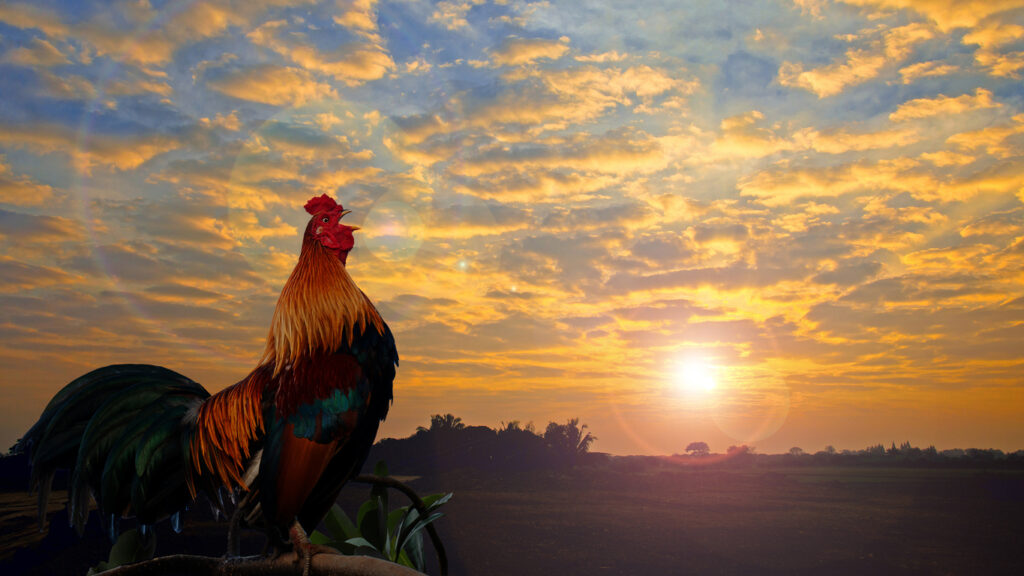
Yes, I’m talking about roosters crowing at the crack of dawn like it’s their life’s mission. However, what’s strange is that they’ll do it whether the sun’s out or not. Even in pitch-black barns or on rainy mornings with no sunrise in sight, they still let rip. So, what gives? Here are 12 down-to-earth explanations for why roosters crow at dawn, even when the sun hasn’t shown up yet.
1. They’re wired with an internal clock.
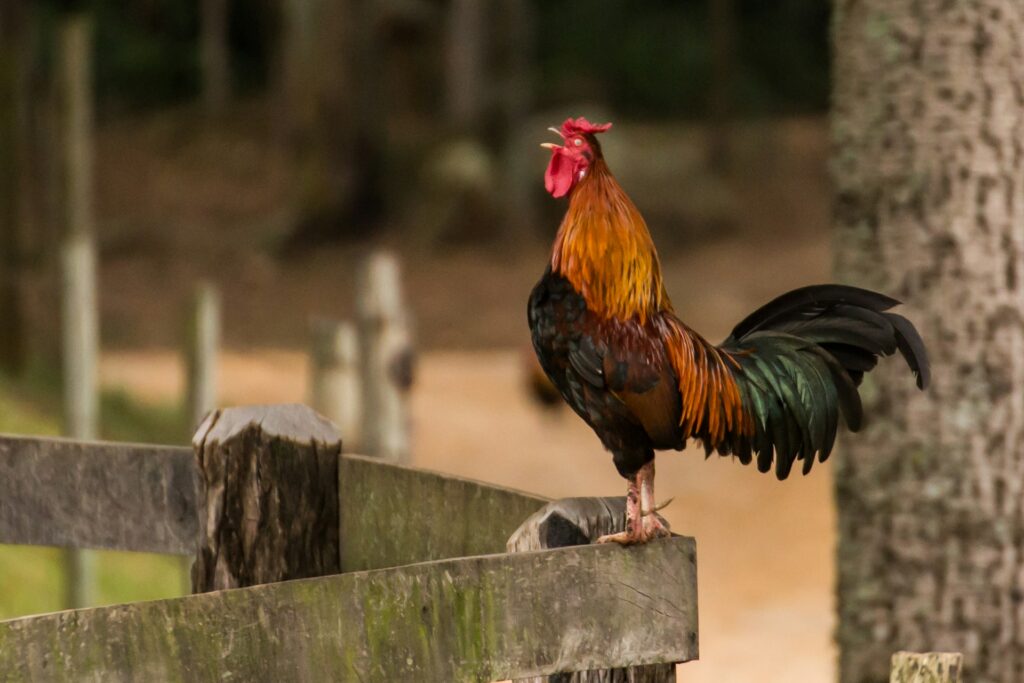
Roosters have a built-in circadian rhythm that tells them when it’s roughly dawn, even without seeing daylight. It’s like their own personal alarm clock, and it’s pretty accurate, too. This rhythm runs on a 24-hour cycle and is influenced by light, but not totally dependent on it. So even in total darkness, their body still knows when morning’s about to kick off, and they start crowing right on cue.
2. Dawn is their way of claiming the day.
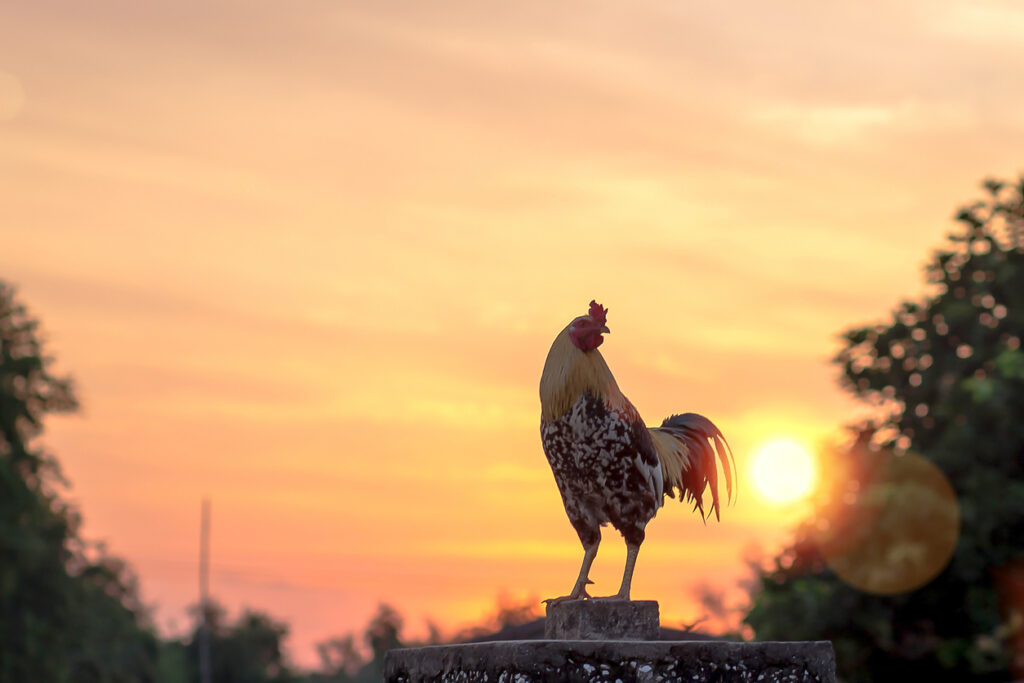
Crowing at dawn isn’t just random noise—it’s a way of saying, “This is my territory, and I’m awake before everyone else.” It’s their version of posting a status update: dominant, loud, and early. Even if they can’t see the sun, they’re still announcing their presence and setting the tone for the day. It’s part of their instinct to be first, be loud, and be heard.
3. Light cues affect their rhythm—even subtle ones.

Roosters might not need to see the full sunrise, but they can still pick up on small changes in ambient light. Even the tiniest increase—like moonlight fading or artificial lights flickering off—can signal it’s time to crow. So even if you think it’s dark, your rooster might be picking up just enough cues to know it’s morning. Their eyesight is sharp in low light, and their body reacts fast to even subtle shifts.
4. It’s a built-in habit, not a reaction.
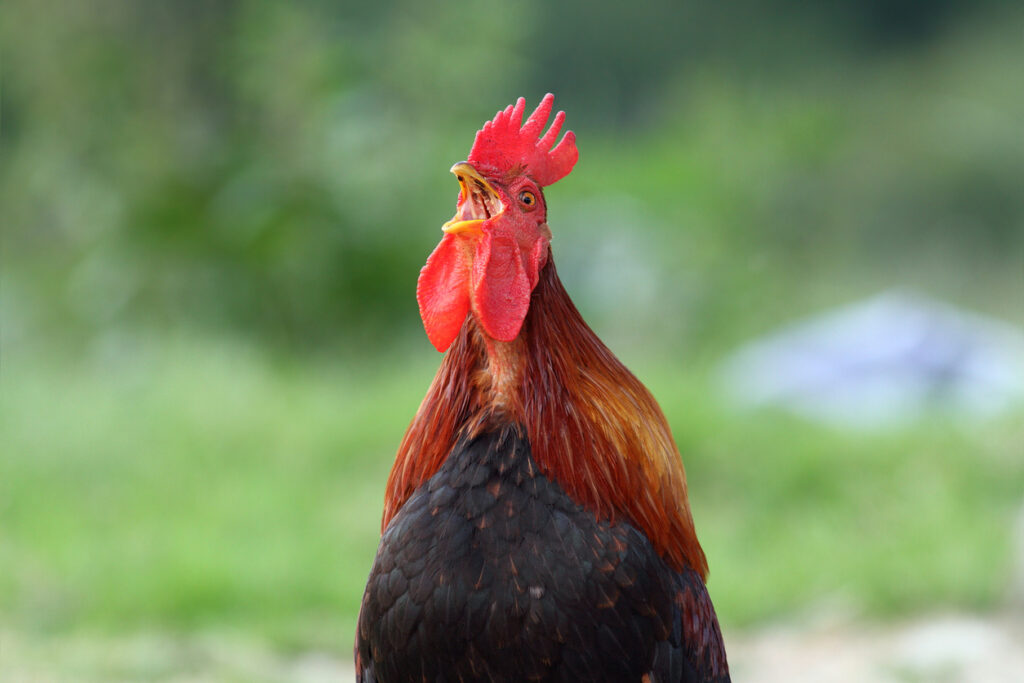
People assume roosters crow *because* the sun rises, but it’s more like the two just happen to line up. The crowing is pre-programmed; the sunrise just happens to follow. That means even on overcast mornings, or in a coop with blackout curtains, they’ll still crow. Their body tells them it’s morning, regardless of what the weather or lighting actually says.
5. They’re marking territory before rivals do.

In the wild, being first to make noise means being first to establish dominance. Roosters crow to let other birds know they’re already on watch—and that any rivals should think twice before approaching. This instinct kicks in whether they can see their surroundings or not. They don’t need visual confirmation of a threat to start making noise—they just need to be first and loud.
6. Crowing keeps their routine stable.
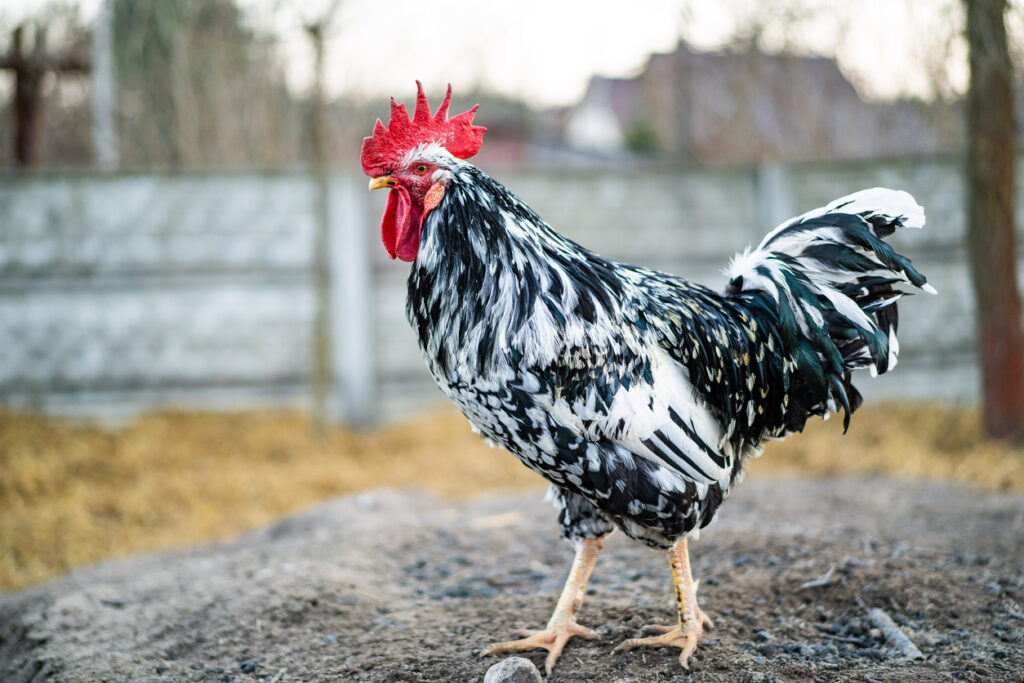
Animals like consistency, and roosters are no exception. Crowing at the same time every day helps reinforce their internal schedule and keeps their rhythm in check. It’s like having a daily ritual—it makes their day predictable and manageable. Whether they can see the sun or not, their crow is their way of saying “Right, time to get going.”
7. They’re responding to noise, even faint ones.
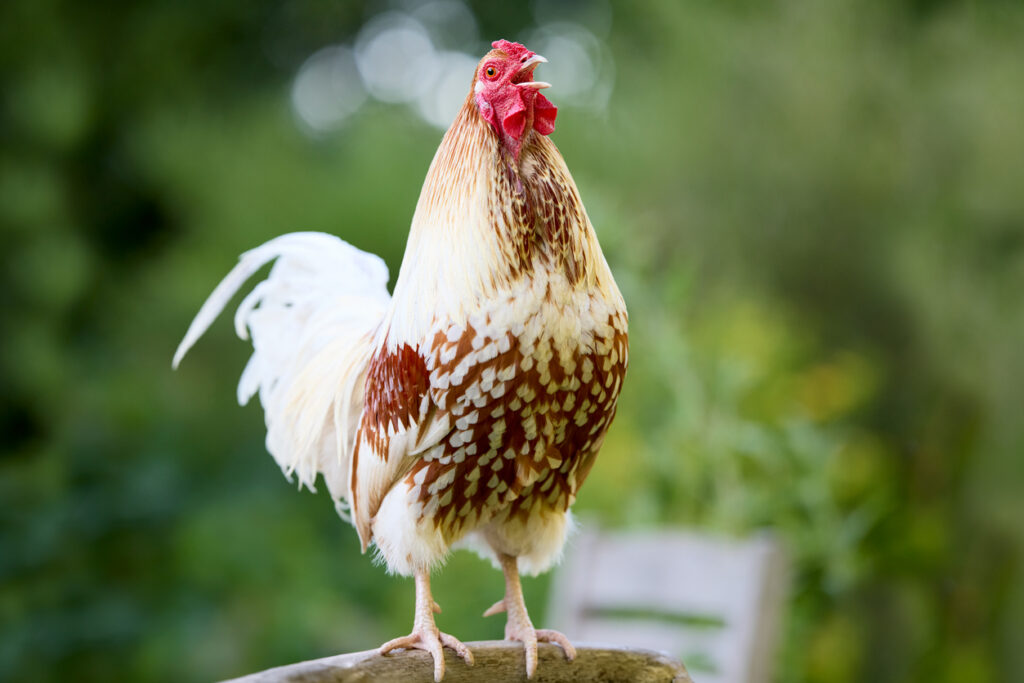
Roosters don’t need visual light to trigger crowing; sometimes it’s sound that gets them going. A nearby rooster, a car door, or a human moving about at dawn can spark them into action. Once one starts, others usually follow, which is why dawn can suddenly turn into a chorus. Even without the sunrise, the world’s early stirrings can set them off.
8. They crow to wake their flock.
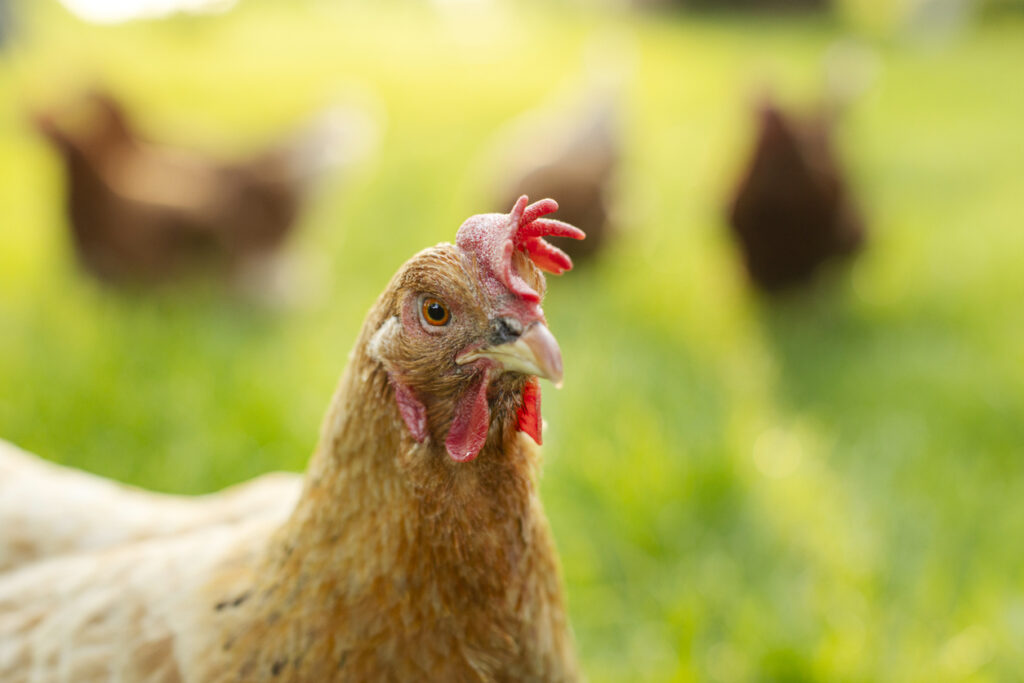
Part of a rooster’s role is to lead and protect the flock. By crowing at dawn, they’re essentially saying, “Morning team, let’s get moving.” It’s a call to action as much as anything else. Even if the hens aren’t keen to get up yet, that first crow signals that the day has officially started. It helps regulate the social rhythm of the group.
9. Their rhythm adjusts to routine, not just daylight.
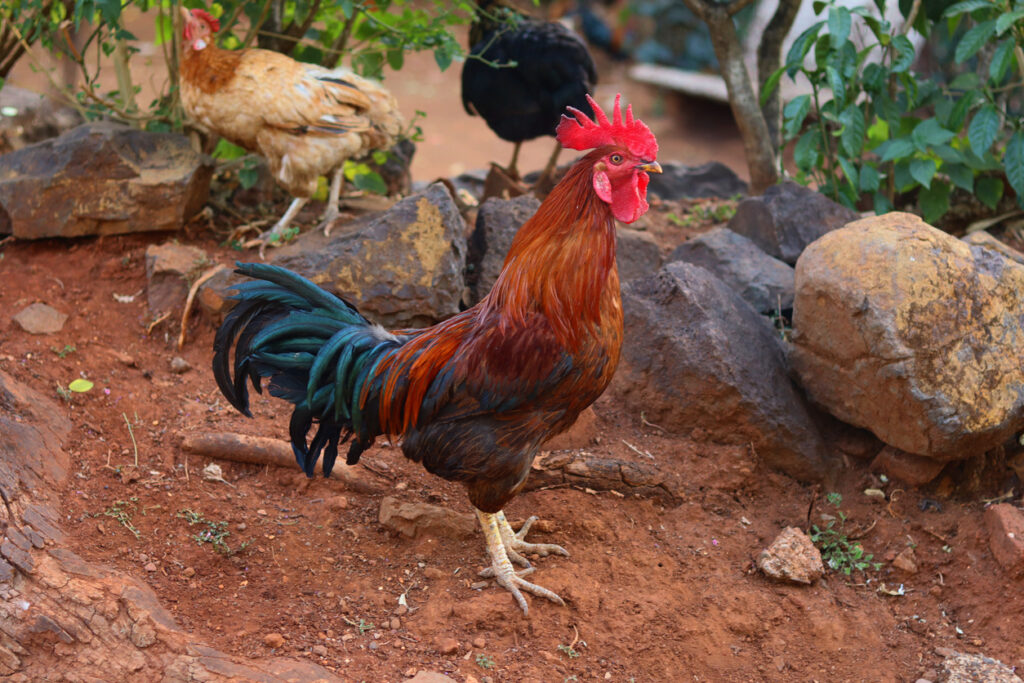
If your rooster is kept indoors or under artificial lighting, they’ll eventually sync their crowing to that schedule instead of natural dawn. They adapt their rhythm to their surroundings over time. So if you always flick the light on at 6am, don’t be surprised if the crowing starts at 5:59. Their body gets used to whatever “dawn” means in their particular setup.
10. They’re naturally early risers.
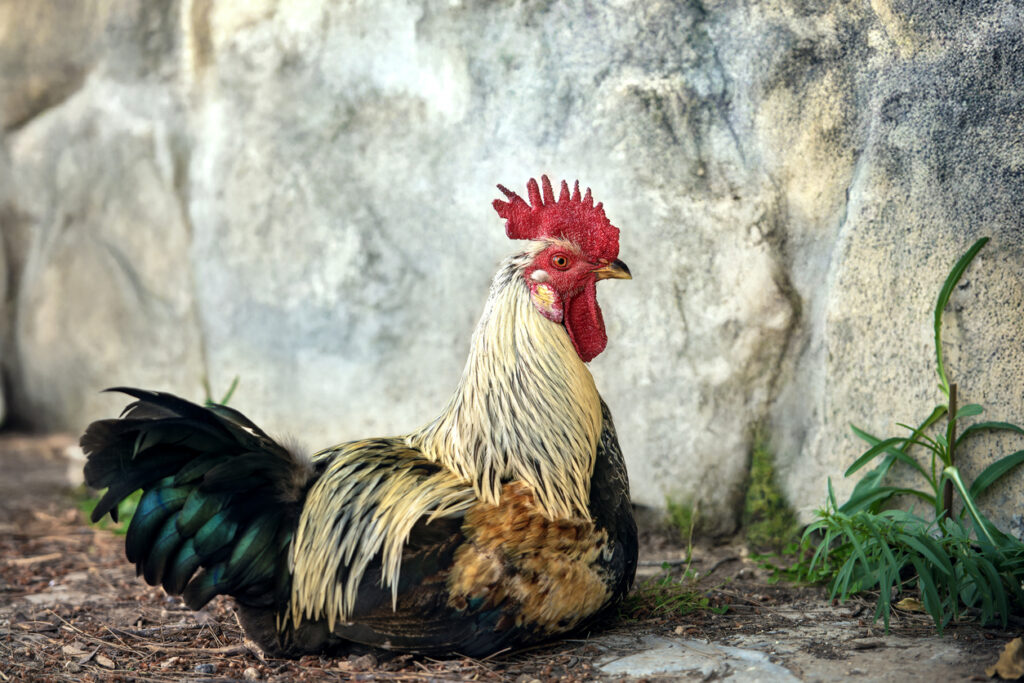
Some animals are nocturnal, some are diurnal, and roosters are somewhere in the early bird camp. Their instincts are tuned to wake up and get going before full daylight hits. Even if they don’t see the sun, their body gets restless just before the light arrives. And crowing is part of that wake-up stretch—it’s how they start their day.
11. They’ve evolved to beat predators to the punch.

Back in their jungle fowl ancestry, being alert before the predators stirred gave roosters a better chance at survival. Crowing early meant showing strength and putting threats on notice. Even though most domestic roosters are far from danger, that ancient instinct is still there. They wake early and make noise—it’s their built-in way of staying on the front foot.
12. Crowing is just part of who they are.
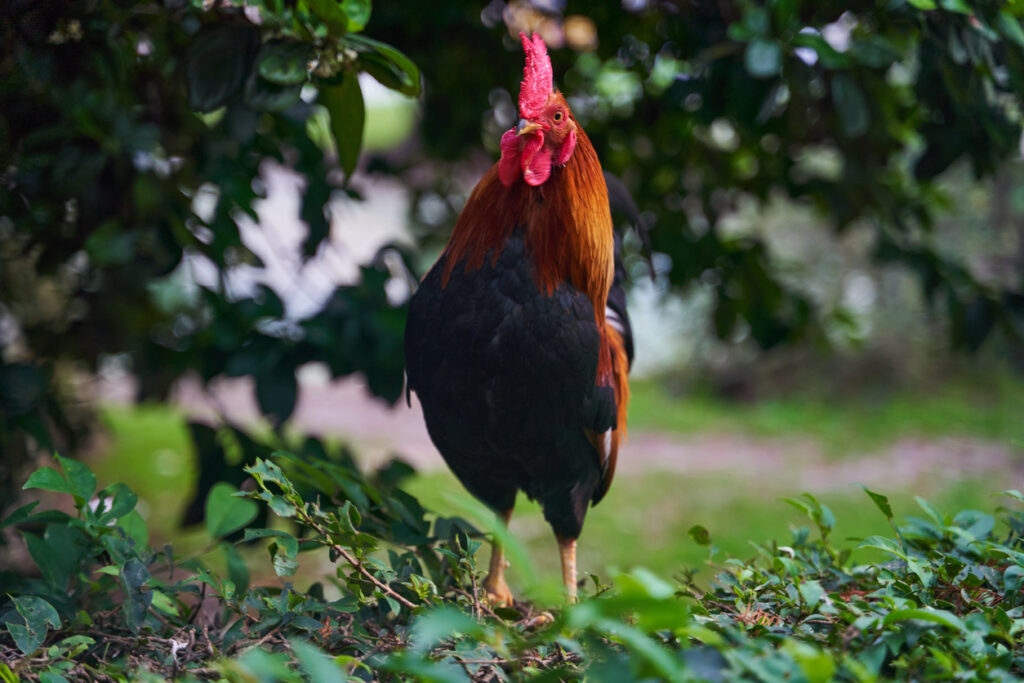
At the end of the day, roosters crow because they’re roosters. It’s not always about light or science or some exact trigger—it’s just part of their personality and rhythm. Whether the sun’s up, the lights are off, or it’s a gloomy morning, they’re going to crow. It’s what they do, and they’ve got millions of years of evolution backing up that noisy morning ritual.